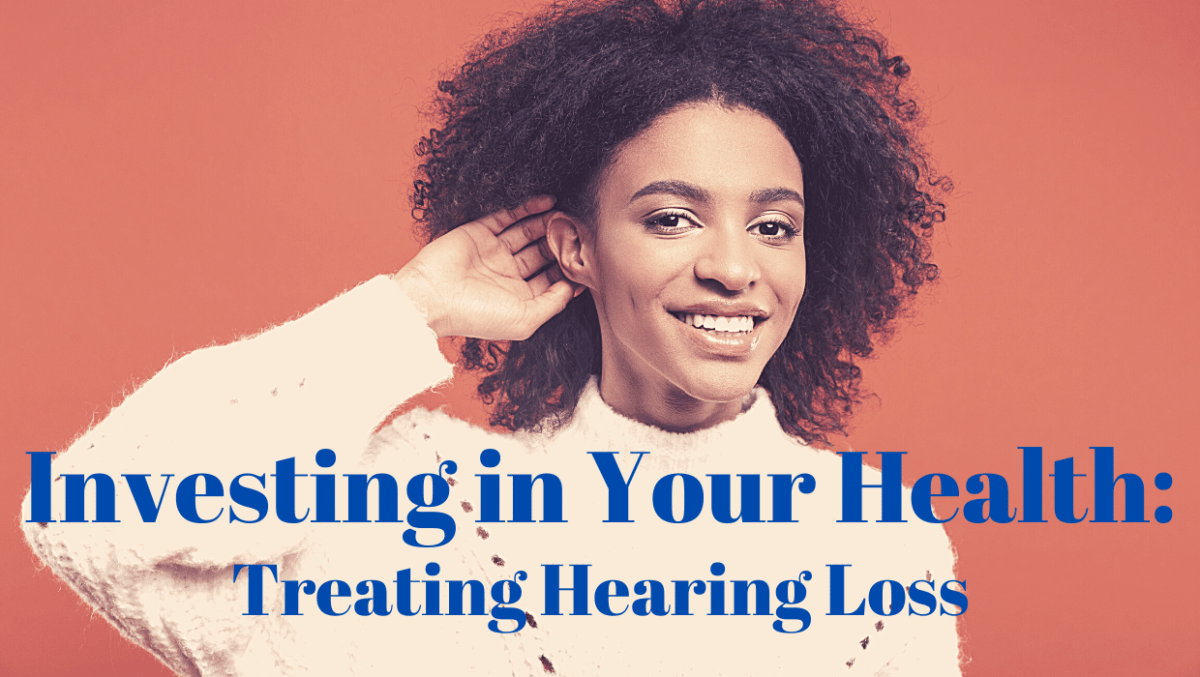If you have recently received a hearing loss diagnosis you are probably weighing the costs and benefits of investing in hearing aids. Quality, high-performance hearing aids are an investment, but one that can easily pay for itself through improvements they bring for your health, communication and lifestyle.
Hearing Aids and Your Health
Untreated hearing loss has been linked to a wide range of other health problems. Increased rates of depression, anxiety and social isolation come about through communication challenges and hearing loss-related stress. Risk for health issues like decreased cognitive performance, falling accidents and even dementia are all elevated with untreated hearing loss. These risks are all linked to the strain hearing loss puts on the mind, pulling focus away from functions like balance and logic, to compensate for lost hearing.
The longer a person goes without addressing their hearing issues, the more hearing is irreversibly changed and, ultimately, the more difficult it becomes to manage and treat. That said, treatment at any stage can still help address related health issues.
By improving speech comprehension, hearing aids make effective communication easier and help address the root causes of depression, isolation and anxiety by making the world easier to navigate and improving interpersonal relationships.
Cognitively, hearing aids remove the burden hearing loss places on cognitive functioning and allows for a more balanced use of mental energy. Use of hearing aids has been shown to improve cognitive functioning even in people living with Alzheimer’s disease, showing significant benefit in health and life outcomes.
Hearing Aids On the Job
Over 60% of people with hearing loss are younger than retirement age, which means roughly 30 million Americans are balancing their hearing loss with school or work. Untreated, hearing loss can make either setting difficult and impair your performance. Around 44% of people with untreated hearing loss are unemployed and on the job unaddressed hearing loss is linked to lower earnings. For those with profound hearing loss, the disadvantages are especially pronounced, translating to an average loss of income around $20,000.
In academic settings, hearing loss can reduce the information retained as well as a person’s ability to participate in class and test well. Education performance is significantly curtailed when hearing loss is left untreated. Impediments to education can turn into limited opportunities both for further education and professional prospects. For those with hearing loss, keeping up at school means extra effort every day to match the performance of their peers.
Hearing aids open doors, both in the classroom and at the workplace. Treating hearing loss and using assistive devices makes speech comprehension much easier and more enjoyable and can help you stay ahead of the game. Hearing aids deliver concrete results as well, improving test scores and closing the income gap.
Hearing Aids and Your Lifestyle
The biggest improvements hearing aids can make in your life are also some of the hardest to quantify. Hearing aids keep you engaged in the activities you love most and allow you to stay close with the family and friends dearest to you.
Hearing loss that is not treated can cascade into a web of unhealthy social behaviors. Activities that you once enjoyed like listening to live music, watching sports, attending church, dining out at a restaurant or attending a dinner party or big get together can be drained of their pleasures when hearing loss makes comprehension difficult. Instead of feeling energized by the experience, hearing loss can leave you frustrated and drained. Patterns can develop of avoiding activities and people, and hearing loss can pave the way for social isolation and limited mobility.
Similarly, unaddressed hearing loss can keep us apart from our loved ones. When hearing loss makes it difficult to understand others and to feel understood, the gap in communication can lead to alienation and isolation.
Again, here hearing aids can help. Hearing aids return a fuller range of sounds to our hearing and make it easier to navigate social situations. The richer communication that results means that we can participate more fully in activities and conversations with others. Hearing aids help you access the very best parts of life.
Investing In Your Health
When you choose to treat your hearing loss, you are investing in yourself and your quality of life. Hearing aids help you access a foundation of communication and health that is undeniably important for living a full life. When you are looking for hearing aids that best fit your lifestyle and hearing needs, our team can help – contact us today!

